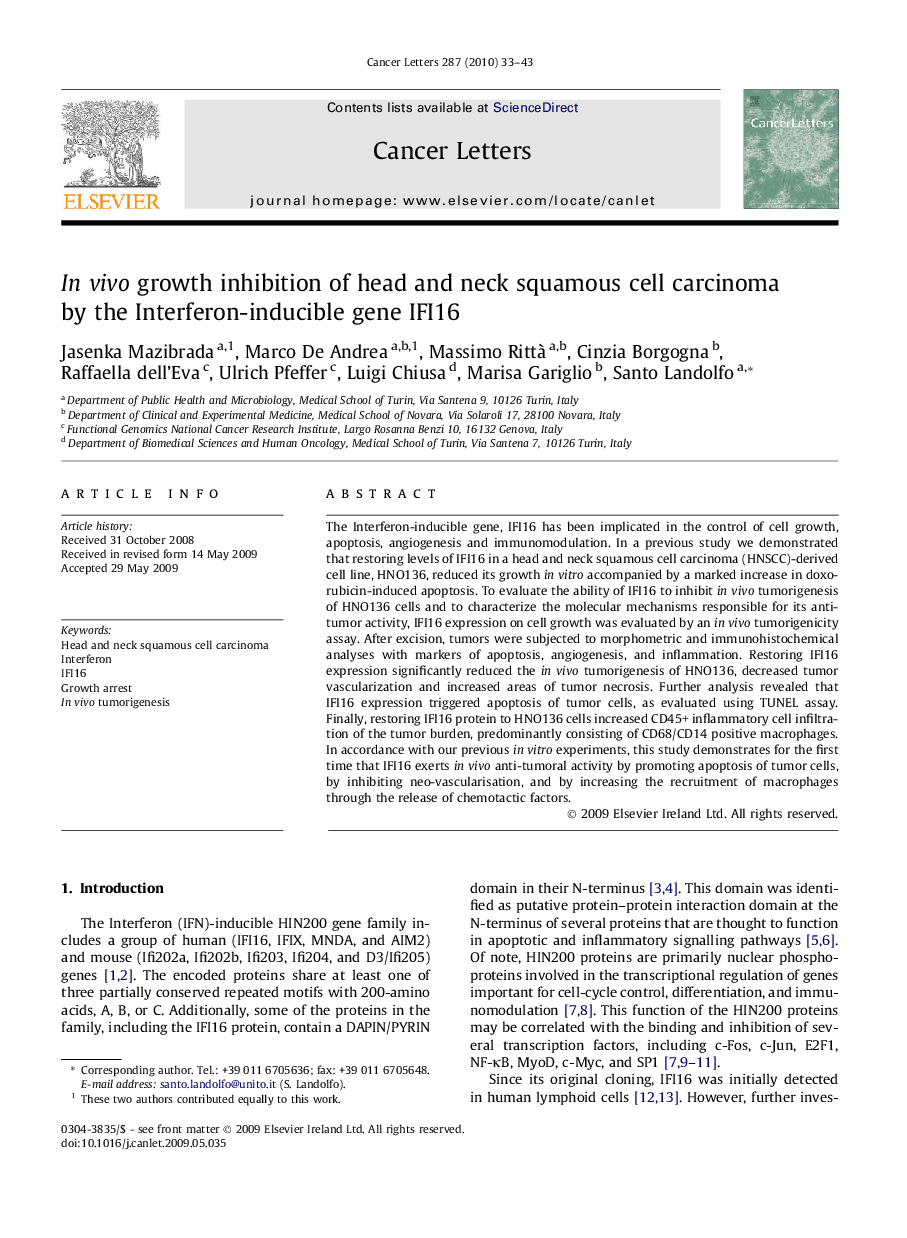| Article ID | Journal | Published Year | Pages | File Type |
|---|---|---|---|---|
| 2114282 | Cancer Letters | 2010 | 11 Pages |
The Interferon-inducible gene, IFI16 has been implicated in the control of cell growth, apoptosis, angiogenesis and immunomodulation. In a previous study we demonstrated that restoring levels of IFI16 in a head and neck squamous cell carcinoma (HNSCC)-derived cell line, HNO136, reduced its growth in vitro accompanied by a marked increase in doxorubicin-induced apoptosis. To evaluate the ability of IFI16 to inhibit in vivo tumorigenesis of HNO136 cells and to characterize the molecular mechanisms responsible for its anti-tumor activity, IFI16 expression on cell growth was evaluated by an in vivo tumorigenicity assay. After excision, tumors were subjected to morphometric and immunohistochemical analyses with markers of apoptosis, angiogenesis, and inflammation. Restoring IFI16 expression significantly reduced the in vivo tumorigenesis of HNO136, decreased tumor vascularization and increased areas of tumor necrosis. Further analysis revealed that IFI16 expression triggered apoptosis of tumor cells, as evaluated using TUNEL assay. Finally, restoring IFI16 protein to HNO136 cells increased CD45+ inflammatory cell infiltration of the tumor burden, predominantly consisting of CD68/CD14 positive macrophages. In accordance with our previous in vitro experiments, this study demonstrates for the first time that IFI16 exerts in vivo anti-tumoral activity by promoting apoptosis of tumor cells, by inhibiting neo-vascularisation, and by increasing the recruitment of macrophages through the release of chemotactic factors.
